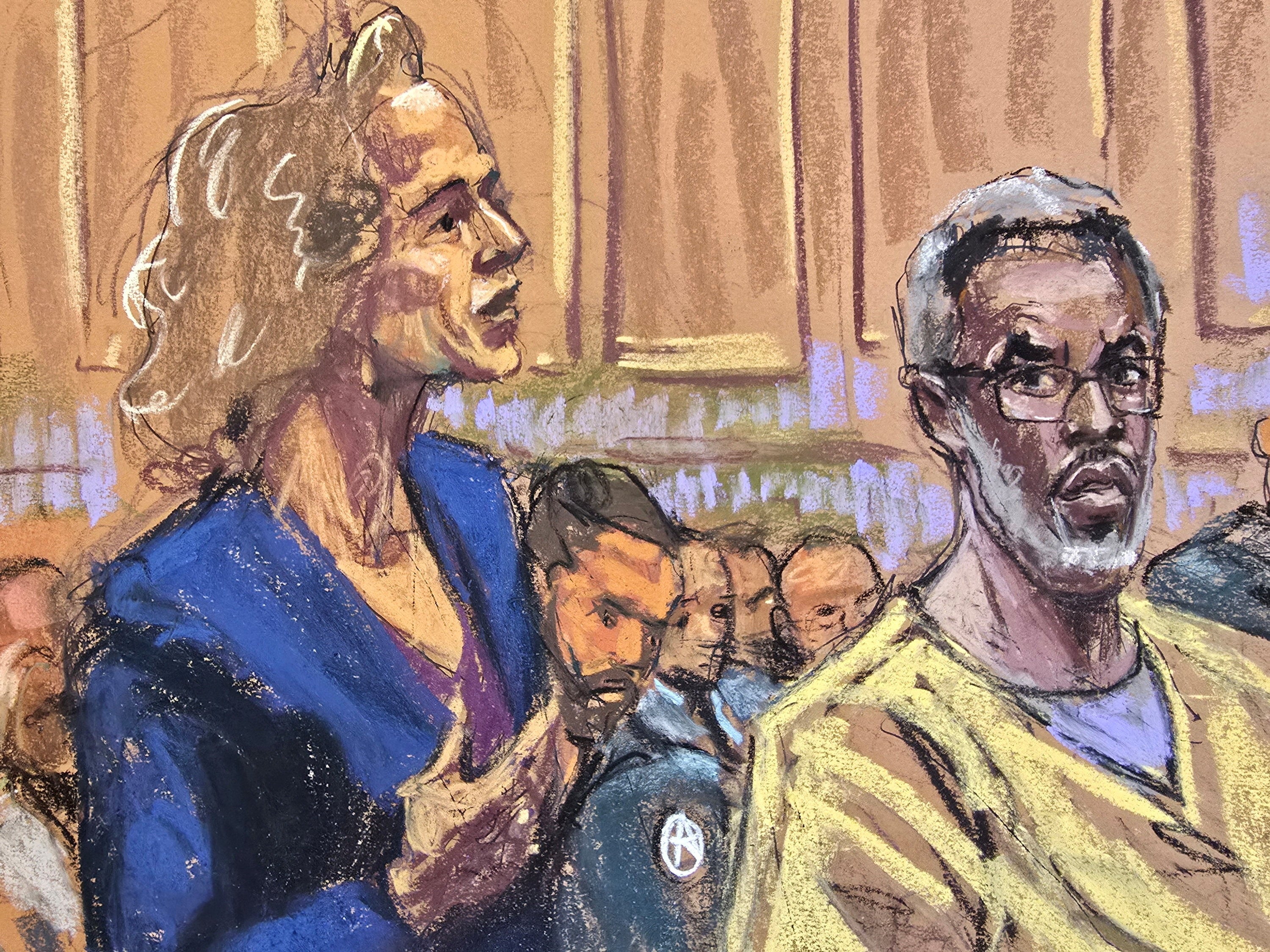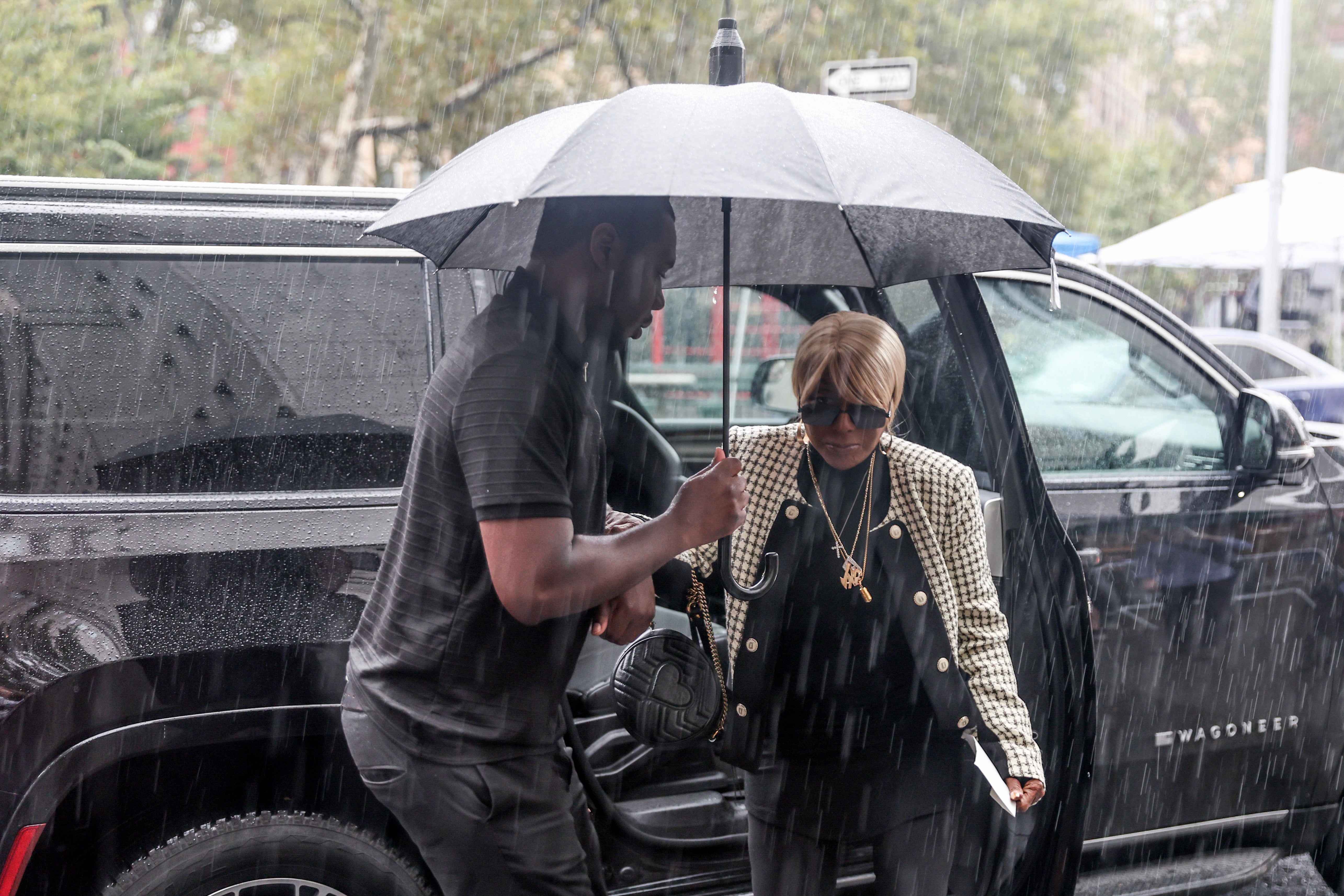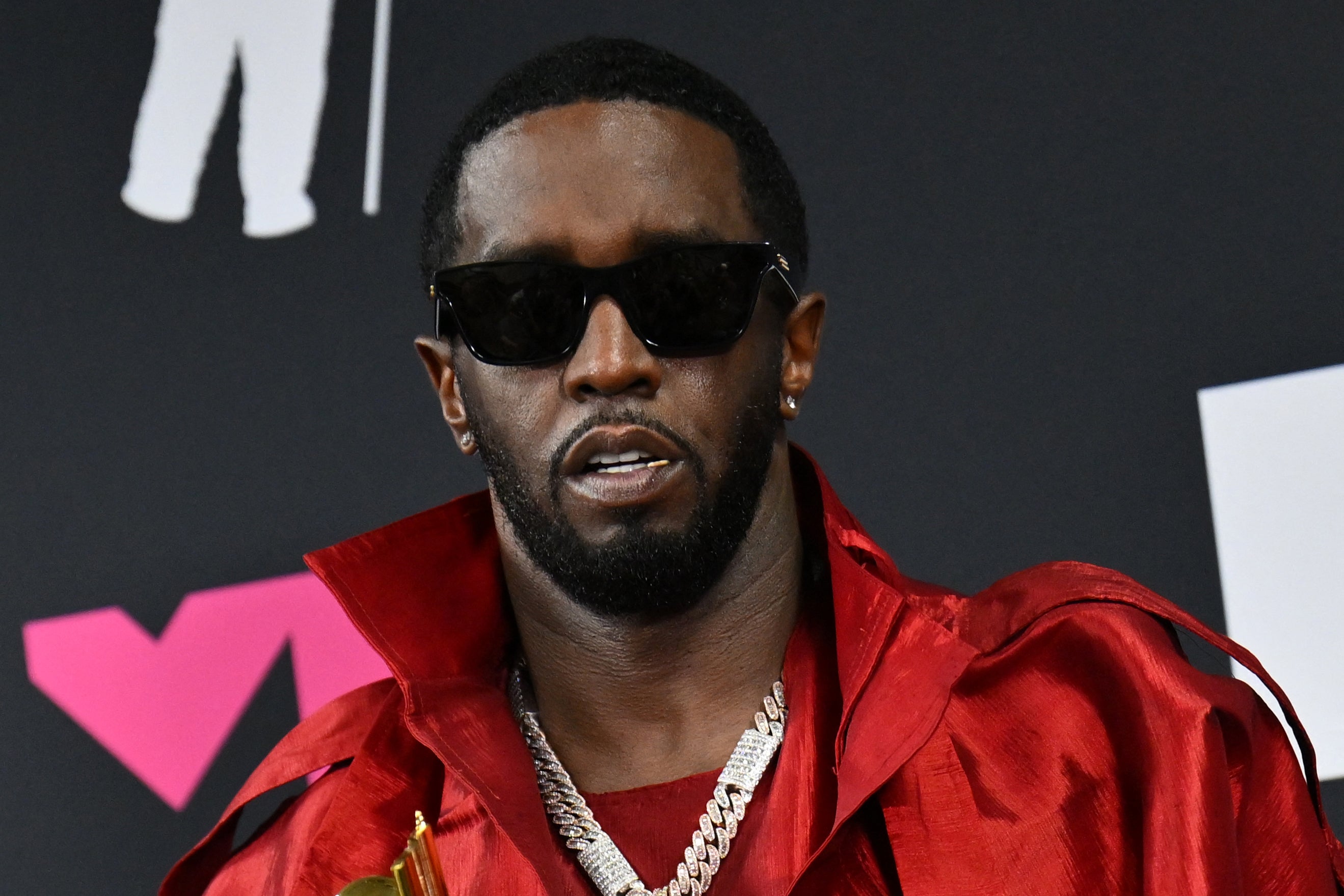Sean “Diddy” Combs was back in a Manhattan courthouse Thursday as his lawyers argued that the music mogul should be acquitted, two months after a jury found him guilty of two prostitution-related charges.
Following the roughly 90-minute hearing, Diddy — wearing a beige prison outfit and with a scraggly gray beard — consulted with his cadre of lawyers for a few minutes before turning around to speak directly to his mother and children, who were sitting in the first few rows of the courtroom.
“Every day, every hour, I get closer to coming home,” the rapper said to his inner circle, commanding the emptying courtroom as if it were a stage. “Your support means more than y’all know.”
He blew a kiss to his mother, Janice, who attended every day of the eight-week trial. Diddy thanked his friends and family for attending the hearing and encouraged them to “stay humble” and “keep making me proud.”
The rapper’s sentencing is scheduled for next Friday.

In July, after hearing shocking details at trial about the mogul’s sex life and drug use, a New York City jury acquitted the rapper of sex trafficking and racketeering conspiracy charges, but convicted him of two counts of transportation to engage in prostitution under the Mann Act, a controversial century-old anti-sex trafficking law.
Noting he was cleared of the more serious federal offenses, Diddy’s lawyers earlier this month asked for him to be either acquitted of the Mann Act counts or be granted a new trial.
Alexandra Shapiro, one of Diddy’s defense attorneys, argued to Judge Arun Subramanian that the Mann Act should “only be applied to pimping.”
She also argued that the conviction violates the First Amendment. She described Diddy as a “producer” and “consumer” of amateur pornography, noting he “routinely” filmed the “Freak Offs” — days-long, drug-fueled sex marathons with his girlfriends and escorts — and later watched the recordings privately.

Christy Slavik, a lawyer for the government, argued that the Mann Act doesn’t criminalize filming sex acts, but it does criminalize transportation to engage in prostitution.
Both sides argued over the definition and interpretation of “prostitution” in the statute.
How the term is defined is overly vague and broad, Shapiro told Subramanian, arguing that her client didn’t participate in sex activity. The definition should exclude those who just watch others engage in sex acts and his conduct should instead be considered “commercial voyeurism,” the defense attorney said.

That doesn’t matter, the government argued. Diddy “facilitated” these Freak Offs, arranging travel for the escorts and his girlfriends and ultimately paying the escorts with his cash. “The issue is not whether he engaged in prostitution, it’s knowingly transporting a person to engage in prostitution,” prosecutor Meredith Foster said.
Shapiro branded the Mann Act “perhaps the most infamous law in the US code” and has “racist and sexist origins.” She underscored that she believes her client should be acquitted.
Slavik underscored the importance of regulating prostitution: to curb disease, monitor illicit drug use, and prevent violence against women.
In this case, “behind closed doors, [Cassie] Ventura was getting punched in the face, and Jane [Doe] was getting hit and kicked,” she argued. The defendant’s motion should be denied, the prosecutor said.
The judge is reserving judgement on the matter, but said he will make a decision “very shortly.”


